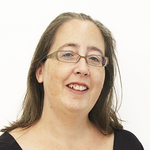Blog
Working together on the puzzle of peace
The role of partnerships
When the theme for the first WIDER Development Conference of 2022—peace, security, and conflict—was chosen some years ago, no one could have predicted how close to home the topic would be. As we welcomed our conference guests to Helsinki on that day, everyone’s thoughts were with our Ukrainian neighbours, whose country, only around 1000 kilometres away, had been invaded by Russia some months earlier.
War drives poverty
Achieving peace remains an urgent challenge. Almost two billion people currently live in fragile and conflict-affected countries, an increase of almost 30% over the last decade.
Ending conflict, achieving peace, and promoting development are closely interlinked, and we cannot make significant progress on one without also working on the others. Armed violence and lack of security have a destructive impact on a country’s development and its institutions and economy for decades to come. While poverty has been reduced across the globe since 1990, it has increased in conflict-affected countries. Wars are one of the most significant drivers of poverty in the world today.
Focus on researching solutions
Successful statebuilding and sustaining peace in conflict-affected countries means understanding the drivers of conflict and its impacts, both during and after a period of conflict. UNU-WIDER has a long history of research in this area: we started studying war and humanitarian emergencies back in the 1990s. In our current work programme, SDG 16: Peace, justice and strong institutions, is one of our focus development goals. Our project on institutional legacies of violent conflict investigates how and why violent conflicts persist in modern times and what can be done to reduce the risk and impact of violence. To do that, we bring together experts from several disciplines—economists, political scientists, data scientists as well as conflict experts—to advance knowledge about conflict-affected settings and map entry points for successful interventions to sustain peace and economic recovery.
Bringing together research and policy audiences
International cooperation and solidarity have never been more important than now. The SDGs can only be realized with strong global partnerships, which is the essence of SDG 17: Partnerships for the goals, and another important focus of our work programme. Governments, civil societies, and communities need to work together to implement lasting solutions to reduce violence, deliver justice, combat corruption and ensure inclusive political participation in societies recovering from conflict. The United Nations has a significant role in connecting local, national, and global actors. UNU-WIDER’s strength in this is its ability to bring together research and policy audiences. Our WIDER Development Conferences provide an ideal forum for that.
‘A better working relationship is needed between experts in the fields of conflict management and development’, said former President of Finland and Nobel Peace Prize laureate Martti Ahtisaari in his opening speech of our first peace and conflict-themed conference in 2004. Despite some remarkable advances, this still holds true today.
The puzzle of peace – towards inclusive development in fragile contexts conference was attended by over 1000 scholars, policymakers, and practitioners either in person or online. Every participant shared a joint interest in addressing the pressing challenges in peacebuilding and post-conflict recovery. Each session was an opportunity for them not just to share research, but to learn about the challenges practitioners experience, to discuss how research can support policymaking, and to form new partnerships in peacebuilding efforts.
Partnerships in peace
We could not do the important work we do without strong partners, with whom we share the same desire to find better solutions to support countries experiencing conflict. Indeed, conflict resolution and peace mediation have been long-term priorities for the sponsors of our current work programme, Finland, Sweden, and Norway, further illustrating how closely aligned our goals are.
In addition to our donors and their national institutions, we are continuously collaborating and exchanging ideas with expert groups and organizations working in this space. For example, since 2004, we have teamed up with the Households in Conflict Network (HiCN) to advance academic research on the effects of violent conflict.
More recently, we started a new academic collaboration with Conflict Research Network West Africa (CORN West Africa) to support young scholars interested in peace and conflict research in African countries.
Indeed, the year 2022 was highly successful in strengthening our partnerships in peace. The Ministry for Foreign Affairs of Finland played a strong role in our Puzzle of peace conference, alongside the CMI – Martti Ahtisaari Peace Foundation, Centre for Peace Mediation and other Finnish actors such as The Finnish Institute of International Affairs (FIIA).
Our peace research network is reaching to all corners of the world through our cooperation with major global institutions such as the Inter-American Development Bank (IDB) and various UN agencies, including United Nations Development Programme (UNDP) and the Peacebuilding Support Office (PBSO). We are also increasing our collaboration within the UNU family, with exciting new joint initiatives with our sister institutes UNU-CPR and UNU-MERIT.
Working together to advance research on the legacies of conflict and the pathways to sustainable peace will continue to be on UNU-WIDER’s agenda, and we look forward to working with partners old and new in the future.
This article was originally featured in the UNU-WIDER Annual Report 2022. Read the full report here.
Patricia Justino Deputy Director at UNU-WIDER and Professorial Fellow at the Institute of Development Studies (IDS) in Brighton, UK (on leave).
The views expressed in this piece are those of the author(s), and do not necessarily reflect the views of the Institute or the United Nations University, nor the programme/project donors.
 Join the network
Join the network
